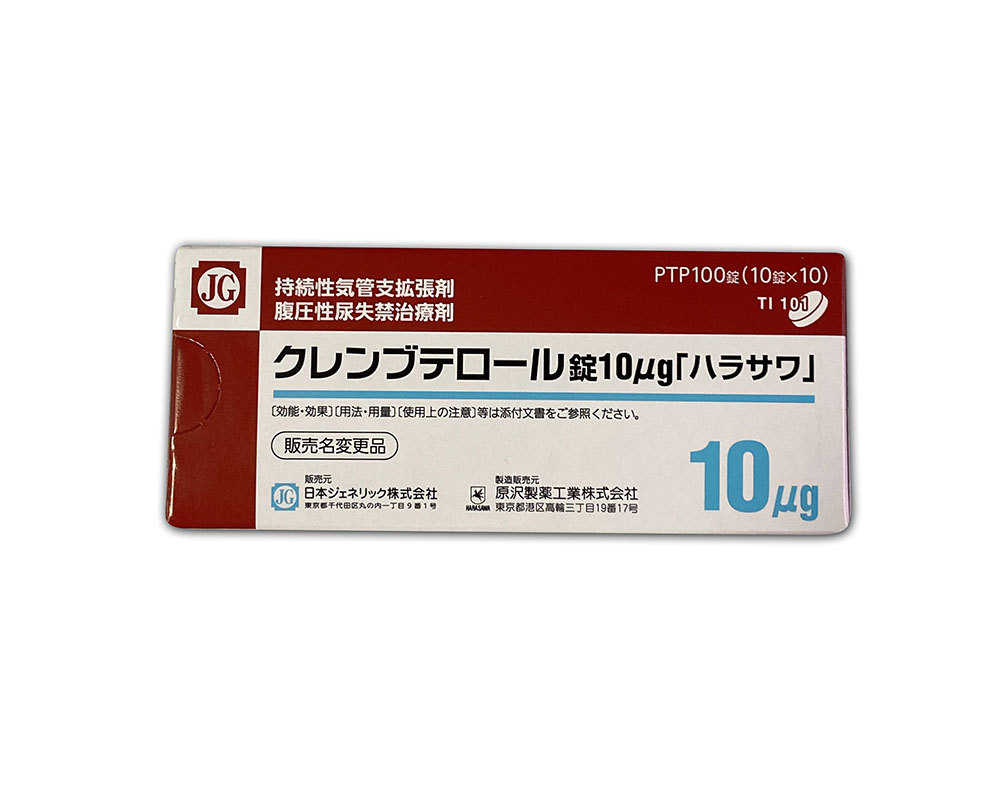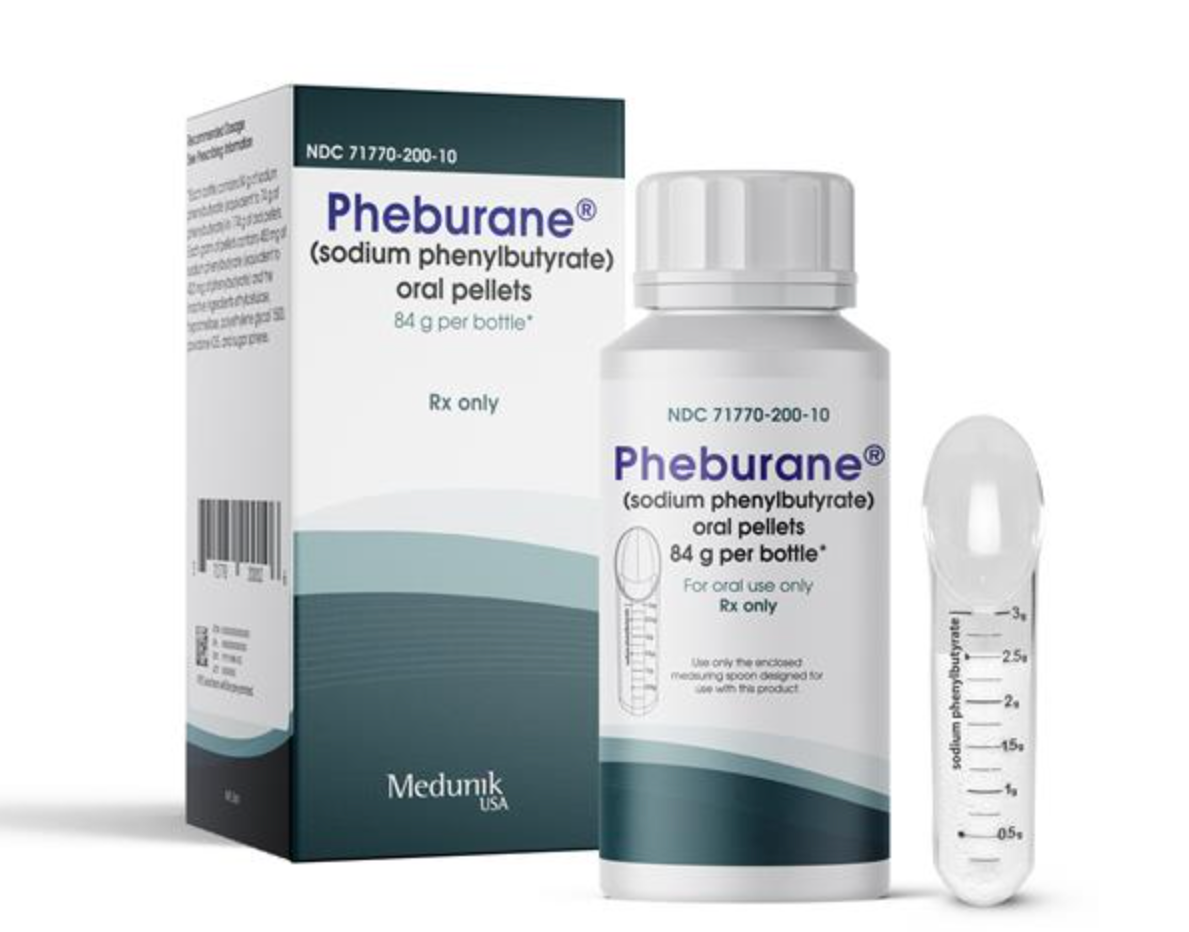Clenbuterol () vs Pheburane (sodium phenylbutyrate)
Clenbuterol () vs Pheburane (sodium phenylbutyrate)
Clenbuterol and Pheburane (sodium phenylbutyrate) are medications used for very different conditions and should not be directly compared for the purpose of choosing one over the other. Clenbuterol is a bronchodilator, often used off-label for weight loss or performance enhancement, but it is not approved for these uses in many countries due to potential side effects. Pheburane, on the other hand, is used to treat urea cycle disorders, which are genetic conditions that affect the body's ability to remove ammonia from the bloodstream, and it is not used for respiratory issues or weight management. If an individual is considering medication, they should consult with a healthcare provider to determine the appropriate treatment based on their specific medical condition and needs.
Difference between Clenbuterol and Pheburane
| Metric | Clenbuterol | Pheburane (sodium phenylbutyrate) |
|---|---|---|
| Generic name | Clenbuterol | Sodium phenylbutyrate |
| Indications | Off-label for weight loss, asthma (outside of the U.S.) | Urea cycle disorders |
| Mechanism of action | Beta-2 agonist | Converts to phenylacetate which binds to ammonia, facilitating its excretion |
| Brand names | Dilaterol, Spiropent, Ventipulmin | Buphenyl, Pheburane |
| Administrative route | Oral, inhaled, intramuscular | Oral |
| Side effects | Tremors, insomnia, sweating, increased blood pressure, nausea | Bad taste, body odor, headache, nausea, vomiting, amenorrhea |
| Contraindications | Cardiac disease, hyperthyroidism, pregnancy | Hepatic insufficiency, hypersensitivity to phenylbutyrate |
| Drug class | Beta-2 adrenergic agonist | Ammonia scavenger |
| Manufacturer | Varies by brand and region | Horizon Pharma (for Buphenyl), Lucane Pharma (for Pheburane) |
Efficacy
Clenbuterol and Amyotrophic Lateral Sclerosis (ALS)
Clenbuterol is a sympathomimetic amine traditionally used as a bronchodilator for the treatment of breathing disorders such as asthma. Despite its primary use, there has been interest in the potential application of Clenbuterol in the treatment of amyotrophic lateral sclerosis (ALS), a progressive neurodegenerative disease that affects nerve cells in the brain and the spinal cord. However, the efficacy of Clenbuterol in treating ALS is not well established, and it is not approved by regulatory agencies for this indication. Research into Clenbuterol's effect on ALS has been limited, and more studies are required to determine its potential benefits and risks in this context.
Studies that have explored the use of Clenbuterol in ALS have been largely preclinical, focusing on animal models. These studies suggest that Clenbuterol may have neuroprotective effects and the potential to slow the progression of motor neuron degeneration. However, translating these findings to human patients is complex, and the clinical efficacy of Clenbuterol in ALS patients remains uncertain. Therefore, Clenbuterol is not currently recommended for the treatment of ALS, and its use is considered off-label and experimental.
Pheburane (Sodium Phenylbutyrate) and Amyotrophic Lateral Sclerosis (ALS)
Pheburane (sodium phenylbutyrate) is a medication that is primarily used for the treatment of urea cycle disorders, which are genetic disorders that lead to the accumulation of ammonia in the body. Similar to Clenbuterol, Pheburane has been investigated for its potential off-label use in ALS. The rationale behind this interest is that sodium phenylbutyrate may have neuroprotective properties and could potentially modulate factors that contribute to the pathogenesis of ALS.
However, the efficacy of Pheburane in the treatment of ALS is not conclusively demonstrated. Clinical trials and studies are necessary to evaluate its safety and effectiveness in ALS patients. As with Clenbuterol, the use of Pheburane for ALS is considered off-label. Clinicians and researchers are cautious about its application for this purpose without robust evidence from well-conducted clinical trials. Until more data is available, the use of Pheburane in ALS remains investigational, and its prescription should be approached with careful consideration of the potential risks and benefits.
Regulatory Agency Approvals
Clenbuterol
-
Pharmaceuticals and Medical Devices Agency (PMDA), Japan

Pheburane
-
European Medical Agency (EMA), European Union

-
Food and Drug Administration (FDA), USA

Access Clenbuterol or Pheburane today
If Clenbuterol or Pheburane are not approved or available in your country (e.g. due to supply issues), you can access them via Everyone.org.
How it works

Make an enquiry
Choose the medicine you want to buy, answer a couple of questions, and upload your prescription to speed things up. We’ll get back to you within 24 hours.


Make an enquiry
Choose the medicine you want to buy, answer a couple of questions, and upload your prescription to speed things up. We’ll get back to you within 24 hours.


Breeze through the paperwork
We'll guide you through the required documents for importing unapproved medicine, ensuring you have all the necessary information.


Get a personalized quote
We’ll prepare a quote for you, including medicine costs and any shipping, administrative, or import fees that may apply.


Receive your medicine
Accept the quote and we’ll handle the rest - sourcing and safely delivering your medicine.

Some text on this page has been automatically generated. Speak to your physician before you start a new treatment or medication.
Let's talk
If you have any questions, call us or send us a message through WhatsApp or email:
Contact us




